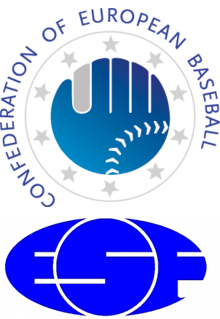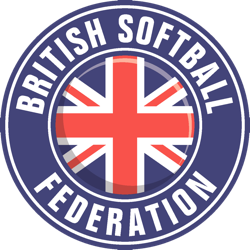 The European Baseball Confederation (CEB) and the European Softball Federation (ESF) held their annual Congresses together on 6-7 February in Dublin, and the joint message was that the two sports will be moving closer together around the world.
The European Baseball Confederation (CEB) and the European Softball Federation (ESF) held their annual Congresses together on 6-7 February in Dublin, and the joint message was that the two sports will be moving closer together around the world.
Delegates from both Congresses met for a joint session on Friday afternoon, 6 February, and heard from World Baseball Softball Confederation and International Baseball Federation President Riccardo Fraccari and WBSC Vice President and International Softball Federation President Dale McMann that the logic of potential Olympic reinstatement means that baseball and softball “not only have to be together in the WBSC, but have to be seen to be together”.
On a world level, and from a public point of view, this means that the International Baseball and Softball Federations will essentially be disappearing, to be replaced by WBSC Baseball and WBSC Softball. Within the WBSC, there will be joint commissions created for men's softball and women's baseball, legal matters, ethics, anti-doping and development. In addition, a task force to look at the WBSC's Constitution and bye-laws will be set up and British softball's Mike Jennings will represent Europe on the ISF team that participates on this task force.
Progress
Dale McMann told the meeting: “Bringing together two organisations that have been independent for fifty years hasn't been easy, but over the past year, we've made important strides to bring the two sports together into one, and together we represent the largest sport in the world that is not in the Olympic programme. Progress is impossible without change.
“One of the major changes you will see is the changing of logos and branding,” McMann added. “There will no longer be ISF branding – it will be WBSC Softball and WBSC Baseball competitions. What hasn't changed is that softball and baseball will continue to operate autonomously in terms of our finances, our championships, our officiating and the election of officers. But we are starting to move together as one federation and we will be making decisions together where it's in the best interest of the two sports to work together.”
Riccardo Fraccari said: “We have to be enthusiastic and keep moving forward. This is an important time for our sports, now and for the future. It's important to clarify the direction we need to take over the next few months and the solution to achieving a strategic plan is to find resources to help the sports to develop.”
“I'm excited with where we are going,” Dale McMann concluded. “We are building an organisation with great strength and it's up to us to capitalise on that potential. But as we do this we have to make sure that we are seen to be a single organisation.”
Olympic hopes
While baseball and softball remain positive about the chance of being restored to the Olympic programme in Japan in 2020, this is not yet a done deal. Host countries can now ask for one or two additional sports to be added to the programmes of the Games they host, but baseball and softball will be in competition with karate and squash, among others, for the extra places in Tokyo, and as Riccardo Fraccari told the session, “we can't make any mistakes”.
The International Olympic Committee (IOC) plans to announce the process for choosing new sports for specific Olympics by April. Sports will apply for these places for Tokyo by September and the outcome will be announced at an IOC session in August 2016. So our sports still face a year and a half of uncertainty.
But should we be successful in getting on the programme for Tokyo, the immediate future could look bright. Both Boston and Rome, candidate cities for the 2024 Olympics, are currently planning to have baseball and softball on their programmes should they win the bid.
ESF Congress highlights
At the ESF Congress itself, there were Commission sessions on Friday 6 February and then the Congress plenary session on the Saturday. Here is a brief overview of the highlights.
MEMBERSHIP. The ESF has gained a new member country, with Lithuania being granted full membership. It was reported that the Greek Softball Federation has now lost its separate status with the Greek Sports Commission and has been paired with gymnastics. The ESF is working with Greek softball to try to get them joined with Greek baseball.
COACHING. A new ESF Coaches Committee will be set up to mirror the National Fastpitch Coaches Association (NFCA) in the United States.
MEDIA UPGRADE. The Congress approved an increase in the 2015 media budget to 20,000 euros following request from Italy at the Finance Commission on Friday. The money is primarily to ensure that additional ESF tournaments can be webstreamed.
NON-EUROPEAN COMPETITORS. An amendment to ESF statutes was passed to allow non-European countries to play in ESF tournaments. This was done primarily for the sake of South Africa and Botswana, as the African Softball Federation is currently not very functional and these countries are suffering from a lack of competitors. There is a precedent for this in that Olympic Qualifying Tournaments, when softball was in the Games, were held on a Euro-Africa basis.
ESF PRESIDENT AND THE ISF. The Congress passed a motion to clarify that the ESF President shall automatically be the First Vice President for Europe on the Executive of the International Softball Federation. A second European Vice President on the ISF Executive will continue to be elected by the ESF Congress.
WARM WEATHER TRAINING. The Congress was given a presentation by Kevin Smith from the Clearwater Sports Commission in Florida and by former US Olympian Michelle Smith to promote the city of Clearwater as a host for training camps and competitions for European teams. The city has a target to be the #1 location for softball in the USA and the world, and they are already sending coaches to work with ESF countries on athlete programmes.
EU FUNDING SOURCES. The ESF is always looking for alternative funding sources for softball in Europe, and the Congress heard a presentation on the European Union's Erasmus and Erasmus+ programmes. Erasmus (European Community Action Scheme for the Mobility of University Students) is an EU student exchange programme established in 1987 and Erasmus+ is a new programme combining all of the EU's current schemes for education, training, youth and sport which began in January 2014. Money can be available from these sources for educational sessions and workshops, and the best bets for funding are schemes involving youth and cross-border participation. However, funding applications need to be made well in advance, as it can take 4-6 months to get an answer!
HALL OF FAME. Jen Terkelsen from Denmark was elected to the ESF Hall of Fame.
Thanks to BSUK Joint CEO John Boyd for reporting on Olympic and WBSC developments and to BSF President Stella Ackrell for providing information for the ESF Congress report.
